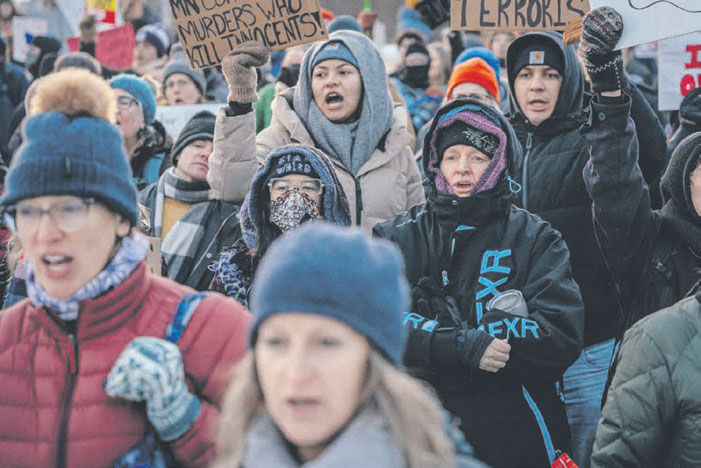Biden asks Congress for nearly $100 billion in disaster aid
- The San Juan Daily Star

- Nov 20, 2024
- 3 min read

By Erica L. Green and Catie Edmondson
President Joe Biden urged Congress earlier this week to provide nearly $100 billion in “urgently needed” aid for communities ravaged by hurricanes and other disasters in recent months, saying funding for some critical programs has either run out or is nearly exhausted.
In a letter to House Speaker Mike Johnson, Biden cited the devastation he saw firsthand as he toured states including Florida, South Carolina and Georgia after Hurricanes Helene and Milton tore through southeastern states this fall, causing billions of dollars in damage and claiming hundreds of lives. “Additional resources are critical to continue to support these communities,” he said.
“From rebuilding homes and reopening critical infrastructure, such as schools and roads, to supporting the nation’s farmers and ranchers and ensuring access to health care services, impacted communities await your response,” Biden wrote. “There can be no delay.”
Biden’s letter aims to ratchet up pressure to act on a Congress that has been reluctant to take up his other recent requests for disaster aid. This time may be different: The president and congressional leaders are now working to cement their last priorities in the months before a sweeping turnover in leadership in Washington, and key members of Congress expressed openness to approving funds.
The aid’s passage may be eased by the fact that much of it would go to districts and states represented by Republicans. Rep. Tom Cole, R-Okla., who chairs the Appropriations Committee, toured a swath of Asheville, North Carolina, over the weekend that had been ravaged by the hurricane.
“The federal government needs to be here in a situation like that,” Cole told a local television station, “and we want to make sure that we get everything right.”
In the past two years, the Biden administration has contended with an increasing number of record-breaking storms, deadly wildfires and other disasters that have strained the federal government’s assistance programs. The new funding package, administration officials said, would help address recovery efforts dating back to 2023, as well as future disasters.
In a memo issued Monday, Shalanda Young, the director of the Office of Management and Budget, said the last time Congress had passed a comprehensive disaster package was in 2022. “Since then, numerous deadly storms and disasters have struck communities across the country and Americans are still picking up the pieces,” Young wrote.
Biden wrote that among the agencies facing the most urgent need is the Small Business Administration’s disaster loan program, which has exhausted its funding. The program provides money to businesses and individuals to rebuild and repair their properties, and it received 100,000 applications from those affected by Hurricanes Helene and Milton alone.
The largest request was $40 billion for the Federal Emergency Management Agency’s Disaster Relief Fund, which helps provide services such as public assistance and debris removal. Biden said that, without the additional funding, the fund would face a shortfall this fiscal year, which would slow recovery efforts and hinder FEMA’s ability to “provide lifesaving and life-sustaining assistance to disaster survivors.”
Biden’s request also includes $24 billion for the Agriculture Department to help farmers who lost crops and livestock, and to support programs such as food assistance for low-income mothers and children.
The request also calls for $12 billion for grants administered by the Department of Housing and Urban Development to help rebuild in more than 20 states and territories recovering from disasters in 2023 and 2024, including the devastating fires in Maui, Hawaii, and tornadoes in Mississippi, Iowa and Oklahoma.
The Biden administration implored Congress to show the same bipartisan support it did in responding to previous natural disasters, such as when it provided $90 billion in aid after Hurricane Katrina in 2005, $50 billion after Hurricane Sandy in 2013, and more than $120 billion after Hurricanes Harvey, Irma and Maria in 2017.
Congressional Democrats vowed to help push the measure through.
“We should not kick the can down the road or withhold vital resources to properly help communities,” said Senate Majority Leader Chuck Schumer, D-N.Y. “It is a long-standing tradition that when any community is hit by disaster in this great country, we all rally together to help our fellow Americans.”






Comments